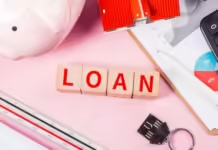Getting a credit card can be a wise financial decision since it gives you access to handy payment options and increased spending power. Nevertheless, obtaining approval for a standard credit card might be difficult for people with little or no credit history. This is where the idea of an FD credit card is useful. This article will discuss the benefits of applying for a credit card using a fixed deposit (FD) and how it can pave the way for increased credit card limits.
Understanding FD Credit Cards
A fixed deposit serves as collateral for an FD credit card. Stated otherwise, you deposit a particular amount of money into a bank’s FD account, and in exchange, the bank gives you a credit card with a limit of up to 90% of the FD amount. Here’s why this might be advantageous:
- Simpler Approval procedure
One of the main advantages of applying for a credit card from FD is that the approval procedure is simple. Banks are more likely to give FD credit cards to people with short credit histories or those turned down for standard cards because you effectively offer collateral in the form of a fixed deposit.
- Creating Credit History
You can establish a good credit history by using an FD credit card responsibly. Your credit score can be raised by on-time payments and prudent credit use, which can subsequently qualify you for better credit card offers and bigger credit limits.
- Increasing Credit Limit
Your creditworthiness increases if you keep using your FD credit card and paying your bills on time. Banks check your credit card account regularly; if they see a pattern of responsible use, they might raise the credit limit. This is a significant benefit for people who want to progressively increase their financial capacity.
- Interest on FD
Your FD continues to accrue interest even as it acts as collateral. Thus, as your funds increase in your FD account, you also establish your credit history.
- Financial Discipline
Using an FD credit card promotes sound money management. When using a typical unsecured credit card, you risk overspending and accruing high-interest debt, but with an FD, you can only spend up to the card’s limit.
- No Income Proof Needed
FD credit cards provide an option for people who do not have a reliable source of income or who find it difficult to produce proof of income. Since the fixed deposit is a guarantee, proving income is usually unnecessary when submitting an application.
- Credit Card Access Without Credit History
Obtaining approval for a typical credit card can be difficult if you lack a credit history and are a first-time borrower. Building credit requires having credit. FD credit cards offer a safe approach to begin establishing your credit profile, which breaks this loop.
- Flexible FD Options
When it comes to the FD amount needed for an FD credit card, banks frequently provide flexibility. Any amount you choose will depend on your financial situation, so it’s affordable for a variety of people.
- Emergency Funds
Your funds in fixed deposit act as a safety net. You can always break the FD and access the cash in the event of crises or unforeseen costs, keeping your credit card account open.
- Gradual Transition to Unsecured Credit Cards
You may qualify for standard unsecured credit cards in the future if you use your FD credit card responsibly and show responsible credit card usage. In the long run, this change may provide you with more advantages and possibilities.
If you’re trying to develop or repair your credit history, applying for an FD credit card is a wise financial decision. It allows you to safeguard your credit card from an FD while taking advantage of all its perks. Using the card sensibly and paying on time raises your credit score and creates opportunities for future credit limit increases. Because of the FD’s protection, you can use credit card benefits without worrying about running up excessive debt. It’s a win-win scenario that can assist you in reaching your financial objectives and encourage wise financial practices. An FD credit card might be the first step towards a better financial future, regardless of your credit history or credit goals.









